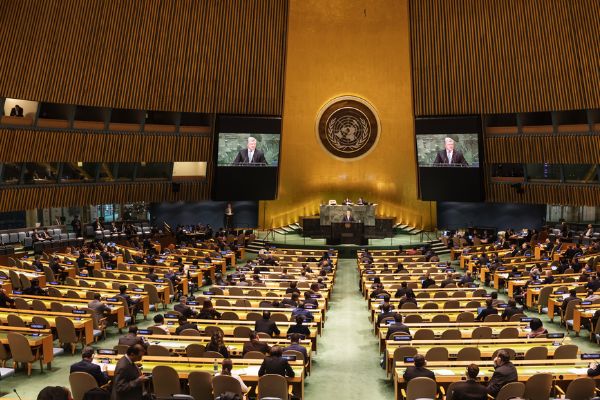The United Nations’ Food and Agriculture Organization (FAO) is set to propose a global initiative urging developed nations, including the United States, to decrease meat consumption as a strategy to combat climate change. This recommendation is expected to be introduced at the upcoming Climate Change Conference COP28 in Dubai.
Bloomberg reports that this proposal by the FAO aims to reduce greenhouse gas emissions by addressing the “excessive appetite” for meat in affluent nations. The initiative will also provide guidelines for farmers to adapt to changing weather patterns and suggest methods to minimize emissions from food waste, post-harvest losses, and fertilizer use.
Jeremy Coller of the FAIRR Initiative emphasizes the significant contribution of food system emissions to global greenhouse gases, calling for a heightened policy focus on food and agriculture sectors.
The FAO’s recommendations are advisory and not legally binding. They highlight the substantial emissions from the livestock sector, which accounts for an estimated 14.5% of global greenhouse gas emissions, according to FAO data. However, the U.S. agriculture industry contributes only a small fraction (1.4%) of global emissions and 10% of total U.S. greenhouse gas emissions.
Contrasting viewpoints exist regarding the effectiveness of switching to vegetarian diets or lab-grown meats in reducing emissions. A study by the University of California, Davis, suggests that lab-grown meat could potentially have a higher environmental impact than traditional beef production.
House Agriculture Committee Chairman Glenn Thompson criticized the FAO’s approach, arguing that over-regulating U.S. farmers and ranchers might lead to increased production in other countries with less stringent environmental standards, thereby not effectively addressing global climate change issues. He praises American farmers and ranchers for their role in reducing emissions while ensuring food security.
The American Farm Bureau Federation also supports this view, highlighting the efficiency gains in American agriculture and the decreasing emissions from livestock production over the years.





Comments are closed.